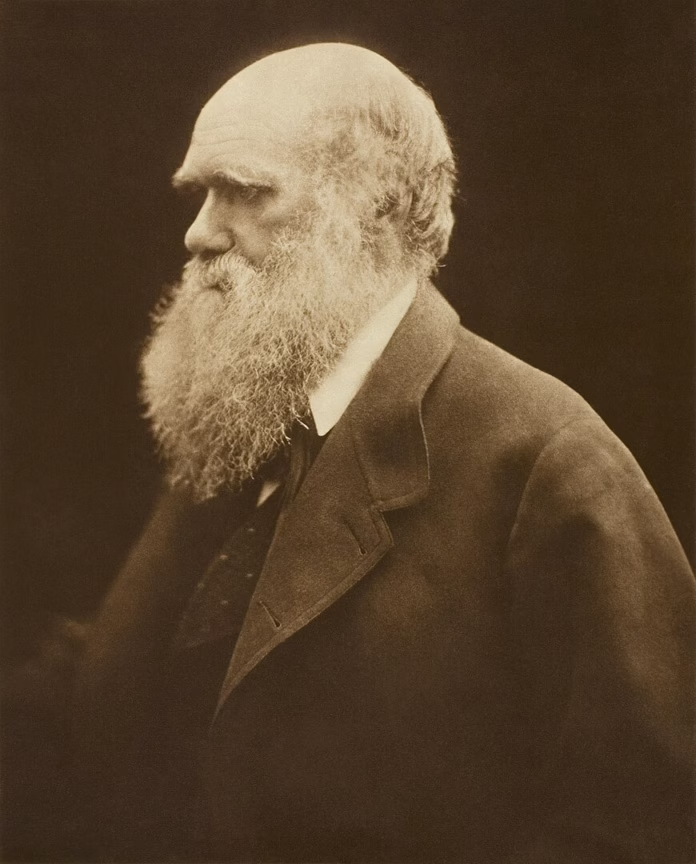Charles Darwin, an eminent naturalist and geologist of the 19th century, revolutionized the way we understand life on Earth. His theory of evolution by natural selection is one of the cornerstones of modern biology, providing a scientific framework for explaining the diversity of life. This detailed exploration delves into Darwin’s life, his groundbreaking work, and the lasting impact of his contributions to science and society.
Early Life and Education
Charles Robert Darwin was born on February 12, 1809, in Shrewsbury, England, into a prominent and intellectual family. His father, Robert Darwin, was a successful physician, and his grandfather, Erasmus Darwin, was a well-known physician and philosopher. Darwin’s mother, Susannah, passed away when he was just eight years old.
Initially, Darwin pursued studies in medicine at the University of Edinburgh. However, he found the field unappealing and instead developed a keen interest in natural history. Later, he transferred to the University of Cambridge to study theology, but his passion for natural sciences persisted. It was during his time at Cambridge that Darwin formed significant relationships with influential scientists like John Stevens Henslow, a botanist, and Adam Sedgwick, a geologist, who encouraged his curiosity about the natural world.
The Voyage of the HMS Beagle
One of the defining moments in Darwin’s life was his voyage aboard the HMS Beagle from 1831 to 1836. Darwin was invited to join the expedition as a naturalist, and the journey profoundly shaped his scientific views.
Key aspects of the voyage:
- Galápagos Islands: While visiting the Galápagos Islands, Darwin observed distinct species of finches and tortoises on different islands. These observations led him to consider how species might adapt to specific environments.
- Fossil Discoveries: Darwin collected fossils of extinct animals, such as giant sloths, which resembled modern species. This raised questions about the continuity and change of life over time.
- Biodiversity: Darwin’s exposure to the incredible biodiversity of South America reinforced his belief that species were not fixed but could change in response to environmental factors.
The Development of Evolutionary Theory
After returning to England, Darwin spent over two decades refining his ideas. Influenced by the works of geologist Charles Lyell and economist Thomas Malthus, Darwin formulated his theory of natural selection. Lyell’s concept of uniformitarianism suggested that the Earth’s features were shaped by slow and continuous processes, while Malthus’ essay on population highlighted the struggle for existence due to limited resources.
The principles of natural selection:
- Variation: Individuals within a species show differences in traits.
- Struggle for Existence: Organisms compete for resources like food, water, and mates.
- Survival of the Fittest: Individuals with advantageous traits are more likely to survive and reproduce.
- Inheritance: Beneficial traits are passed on to the next generation.
- Speciation: Over time, the accumulation of adaptations can lead to the emergence of new species.
“On the Origin of Species”
In 1859, Darwin published his seminal work, On the Origin of Species by Means of Natural Selection. The book presented a compelling argument for evolution, backed by extensive evidence from Darwin’s observations and experiments.
Key contributions of the book:
- Unity of Life: Darwin proposed that all living organisms share a common ancestor.
- Tree of Life: He introduced the concept of a branching evolutionary tree, representing relationships among species.
- Natural Selection: The mechanism by which evolution occurs was thoroughly explained.
- Adaptation: Darwin illustrated how organisms become better suited to their environments over time.
The book sparked widespread debate, challenging the prevailing belief in the immutability of species. While many scientists embraced Darwin’s ideas, others resisted due to their perceived conflict with religious doctrines.
Later Life and Works
Darwin continued to expand upon his evolutionary ideas throughout his life. He published several additional works, including:
- “The Descent of Man” (1871): Darwin explored human evolution, arguing that humans share a common ancestor with other primates.
- “The Expression of the Emotions in Man and Animals” (1872): This work examined the evolutionary basis of emotions.
- “The Variation of Animals and Plants Under Domestication” (1868): Darwin investigated artificial selection as a parallel to natural selection.
Despite his groundbreaking contributions, Darwin faced criticism and personal challenges. He struggled with chronic illness for much of his life and often avoided public confrontations about his theories.
Legacy and Impact
Charles Darwin’s work has had a profound and lasting impact on science and society. His theory of evolution revolutionized biology, influencing disciplines such as genetics, ecology, and paleontology. Key aspects of his legacy include:
- Modern Evolutionary Synthesis: In the 20th century, Darwin’s ideas were integrated with Mendelian genetics, forming the foundation of modern evolutionary biology.
- Advances in Medicine: Understanding evolution has informed research in areas like antibiotic resistance and the evolution of diseases.
- Conservation Biology: Darwin’s insights have guided efforts to protect biodiversity and understand the effects of climate change.
- Philosophical Implications: Darwin’s work has shaped discussions about humanity’s place in the natural world, challenging anthropocentric views.
Controversies and Misconceptions
Darwin’s theory has not been without controversy. Misinterpretations and misuse of his ideas have led to ethical and societal debates. For example:
- Social Darwinism: Some individuals misapplied Darwin’s ideas to justify inequality and eugenics, concepts that Darwin himself did not endorse.
- Religious Opposition: The perceived conflict between evolution and religious beliefs has persisted, despite efforts to reconcile the two perspectives.
Charles Darwin’s contributions to science and our understanding of life on Earth are immeasurable. His theory of evolution by natural selection not only provided a unifying explanation for the diversity of life but also inspired countless advancements in science and philosophy. Darwin’s legacy endures, reminding us of the importance of curiosity, observation, and the pursuit of knowledge in unraveling the mysteries of the natural world.

